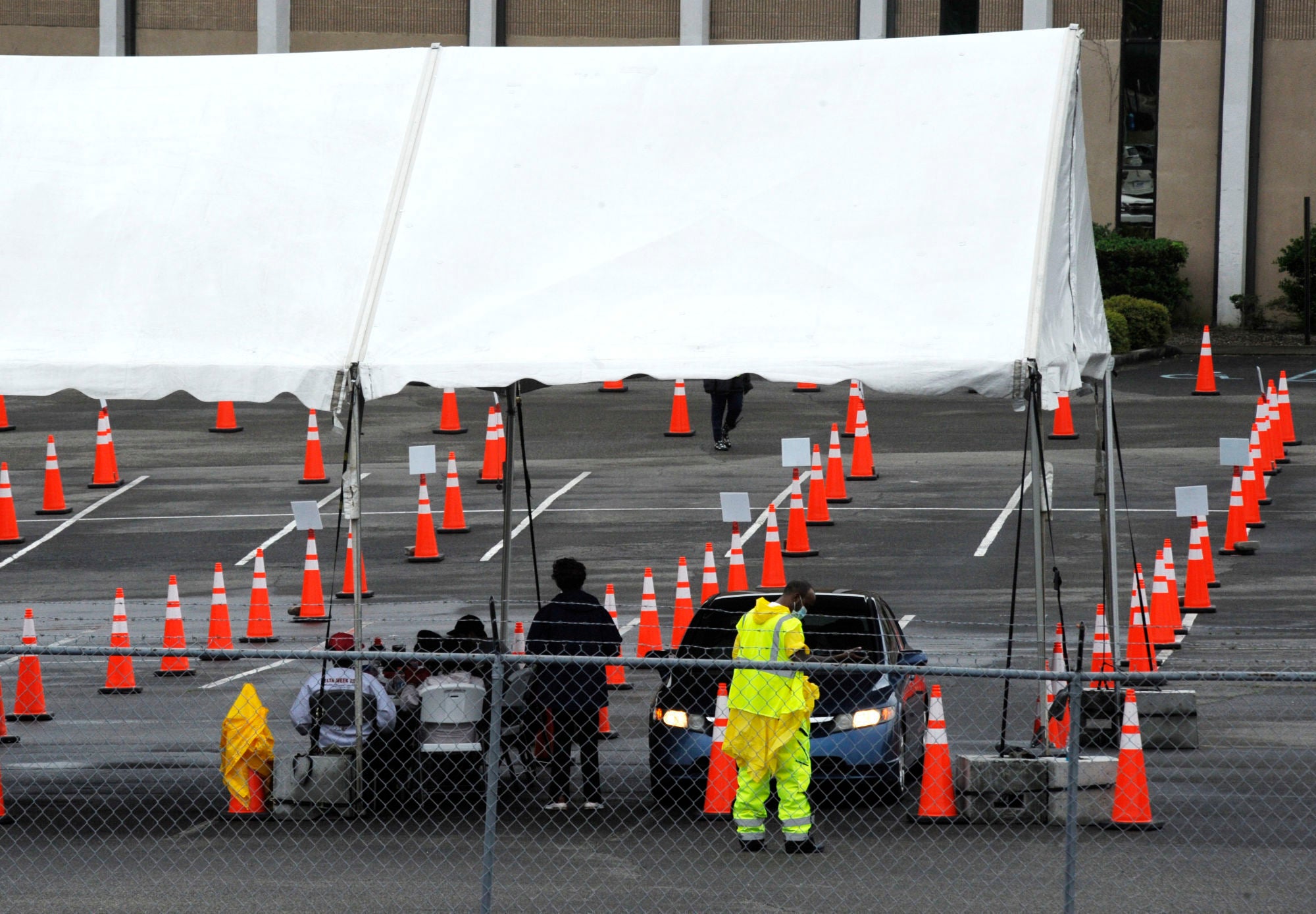As COVID-19 cases wane, vaccine-lagging areas still see risk
New COVID-19 cases are declining across the most of the country, even in some states with vaccine-hesitant populations

Your support helps us to tell the story
From reproductive rights to climate change to Big Tech, The Independent is on the ground when the story is developing. Whether it's investigating the financials of Elon Musk's pro-Trump PAC or producing our latest documentary, 'The A Word', which shines a light on the American women fighting for reproductive rights, we know how important it is to parse out the facts from the messaging.
At such a critical moment in US history, we need reporters on the ground. Your donation allows us to keep sending journalists to speak to both sides of the story.
The Independent is trusted by Americans across the entire political spectrum. And unlike many other quality news outlets, we choose not to lock Americans out of our reporting and analysis with paywalls. We believe quality journalism should be available to everyone, paid for by those who can afford it.
Your support makes all the difference.New COVID-19 cases are declining across the most of the country, even in some states with vaccine-hesitant populations. But almost all states bucking that trend have lower-than-average vaccination rates, and experts warn that relief from the pandemic could be fleeting in regions where few people get inoculated.
Case totals nationally have declined in a week from a seven-day average of nearly 21,000 on May 29 to 14,315 on Saturday, according to data from Johns Hopkins University For weeks, states and cities have been dropping virus restrictions and mask mandates, even indoors.
Experts said some states are seeing increased immunity because there were high rates of natural spread of the disease, which has so far killed nearly 600,000 Americans.
“We certainly are getting some population benefit from our previous cases, but we paid for it,” said Mississippi State Health Officer Dr. Thomas Dobbs. “We paid for it with deaths.”
More than 7,300 Mississippians have died in the pandemic, and the state has the sixth-highest per capita death rate.
Dobbs estimated that about 60% of the state’s residents have “some underlying immunity.”
“So we’re now sort of seeing that effect, most likely, because we have a combination of natural and vaccine-induced immunity,” Dobbs said.
Just eight states — Alabama Arkansas, Hawaii, Missouri, Nevada, Texas Utah and Wyoming — have seen their seven-day rolling averages for infection rates rise from two weeks earlier, according to data compiled by Johns Hopkins University. All of them except Hawaii have recorded vaccination rates that are lower than the US average of 39.7% fully vaccinated, according to the U.S Centers for Disease Control and Prevention.
The 10 states with the fewest new cases per capita over that time frame all have fully vaccinated rates above the national average. That includes the nation’s three most vaccinated states: Vermont, Massachusetts and Connecticut
Medical experts said a host of factors is playing into the drop in case counts across the country, including vaccines, natural immunity from exposure to the virus, warmer weather and people spending less time indoors.
But Dr. Leana Wen, a public health professor at George Washington University, said she is concerned that the natural immunity of those who have been exposed to coronavirus may soon wane. And she’s worried that states with low vaccination rates could become hot spots.
“Just because we’re lucky in June doesn’t mean we’ll continue to be lucky come the late fall and winter,” said Wen, the former health commissioner for the city of Baltimore. “We could well have variants here that are more transmissible, more virulent and those who do not have immunity or have waning immunity could be susceptible once again.”
In Mississippi, about 835,000 people have been fully vaccinated, or 28% of the population, compared to the national average of 43%. But despite the lagging vaccination rate, the state's rolling average of daily new cases over the past two weeks has decreased by about 18%, according to Johns Hopkins.
Dr. Albert Ko, who chairs Department of Epidemiology of Microbial Diseases at Yale, said there is no accurate data to show what percentage of the population in “high burden” states such as Alabama or Texas have been exposed to the virus, but he said estimates have put it as high as 50%.
“I think it doesn’t deny the importance of vaccination, particularly because the levels of antibodies that you get that are induced by natural infection are lower than that of what we have for our best vaccine,” Ko said.
Ko said it is important that even those exposed to the disease get vaccinated because natural immunity does not last as long as vaccine immunity and the levels of antibodies are lower.
Wen said research strongly suggests that vaccinations provide a benefit to those who already have some antibodies due to infection.
"I think it is a fallacy that many people have that recovery means they no longer need to be vaccinated,” she said.
___
Pat Eaton-Robb contributed to this report from Connecticut.